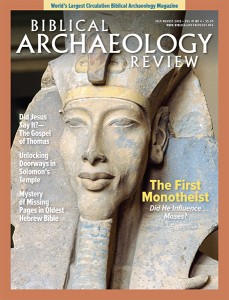It is common to say, “Bless you,” when someone sneezes. Where did this expression come from? Anne Marie Kitz, author of Cursed Are You! The Phenomenology of Cursing in Cuneiform and Hebrew Texts,1 explains that “bless you” is a shortened form of the petitionary phrase, “May God bless you.” When the entire expression is visible, two things become obvious: First, the person doing the blessing is God and not the individual speaking the blessing. Second, this is not a command. The person saying the blessing is not commanding God to bless another; the speaker is beseeching God to do so.
Just as people uttered blessings in the ancient Near East, they also pronounced curses. We find curses in Mesopotamian law codes, Egyptian texts and even the Hebrew Bible.
Kitz explains that curses first appeared in judiciary settings. Individuals would swear oaths before deities. If they reneged on their promise, they then made themselves susceptible to the curses outlined in the oath.
Deuteronomy 28 outlines the conditions of the covenant between the Israelites and Yahweh before they enter the Promised Land. The passage presents two different trajectories: blessings and curses. While the blessings in the text sound great, the curses listed—should the Israelites not obey God and follow his decrees—are terrifying:
Cursed shall you be in the city, and cursed shall you be in the field.
Cursed shall be your basket and your kneading bowl.
Cursed shall be the fruit of your womb, the fruit of your ground, the increase of your cattle and the issue of your block.
Already a library member? Log in here.
Institution user? Log in with your IP address.

